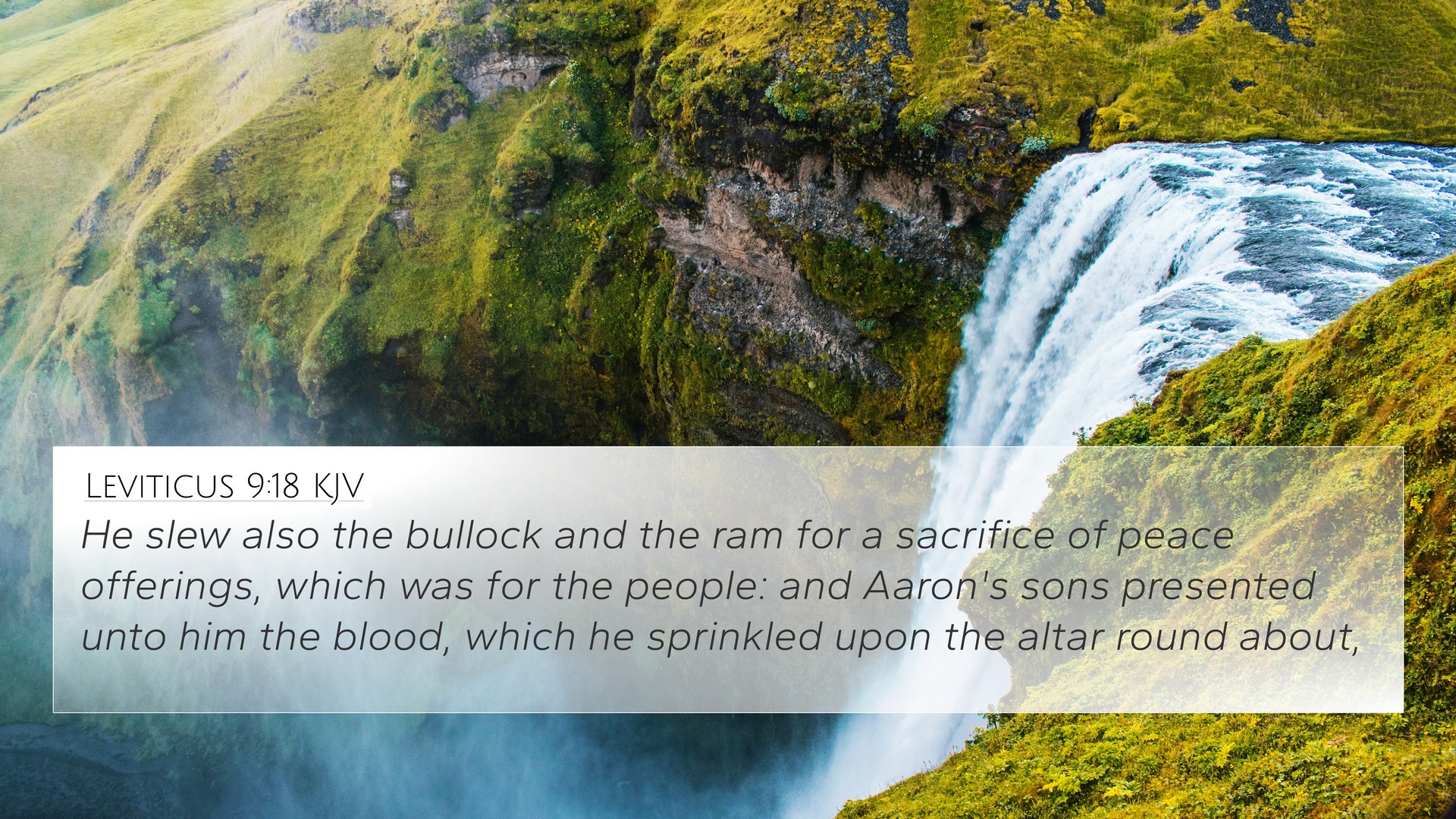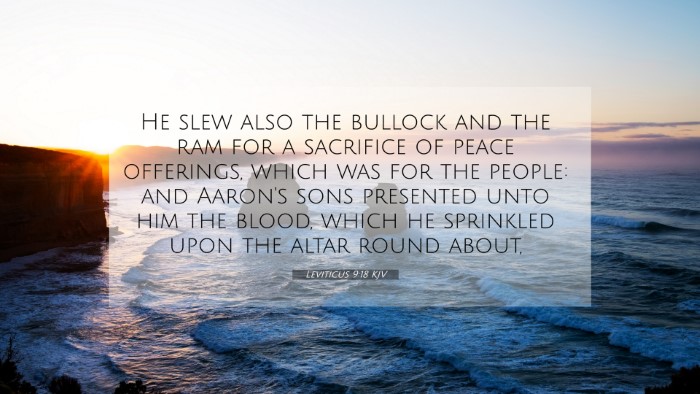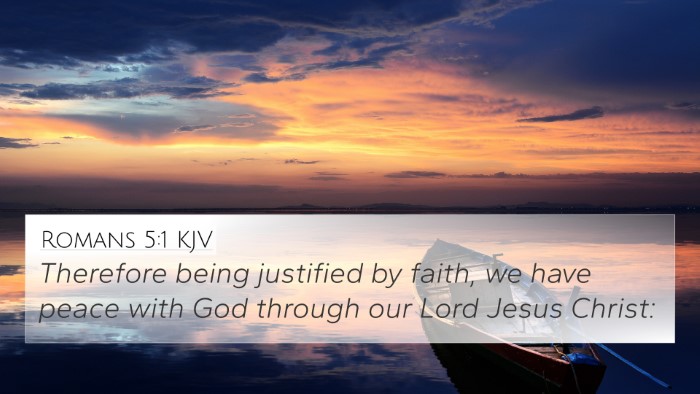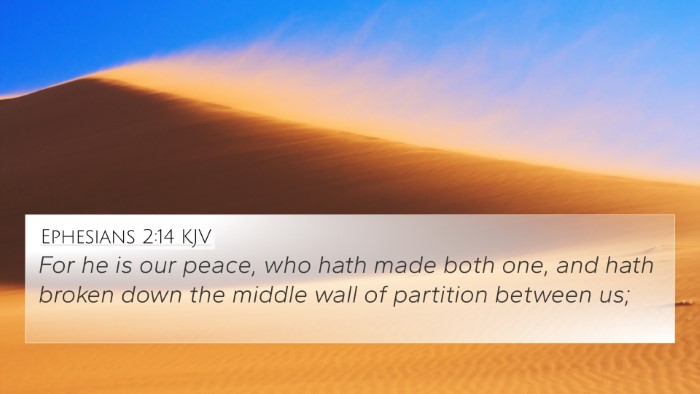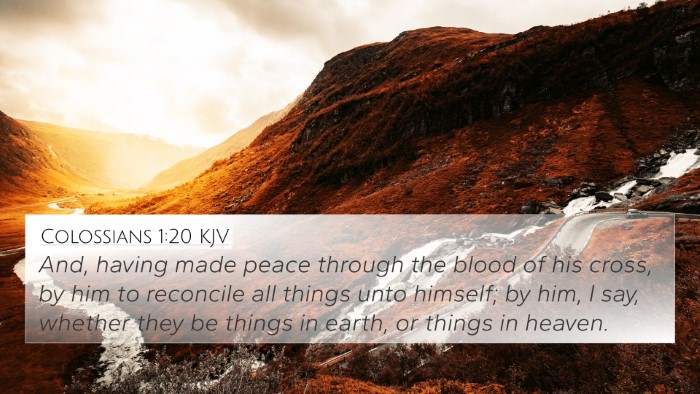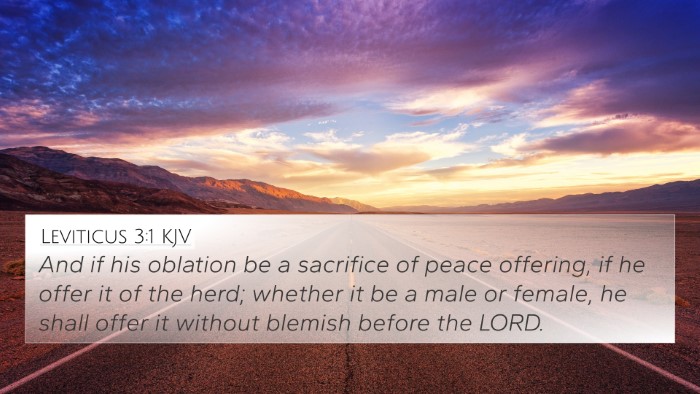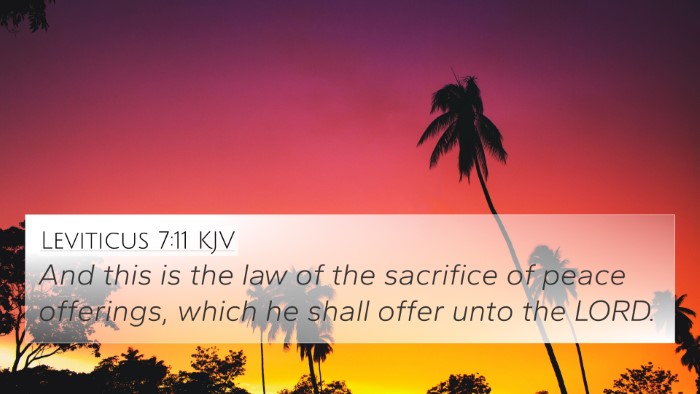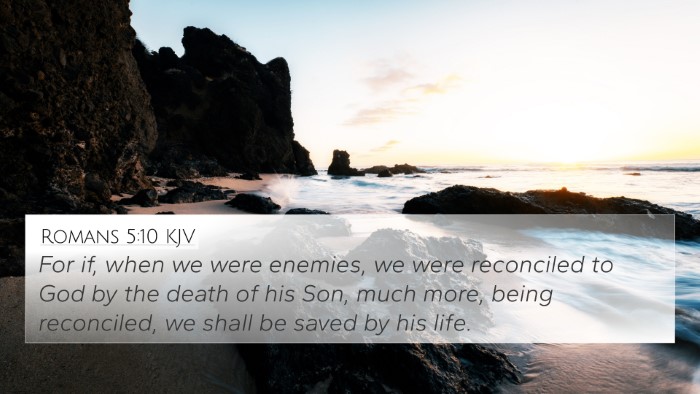Understanding Leviticus 9:18
Leviticus 9:18 states: "He also killed the ox and the ram, the sacrifice of peace offerings, which was for the people: and Aaron's sons presented unto him the blood, which he sprinkled upon the altar round about."
Summary of Meaning
This verse describes an essential ritual in the process of offering sacrifices as prescribed in the Levitical laws. Aaron, the high priest, conducts peace offerings on behalf of the people, a significant act of worship and atonement.
Commentary Insights
Drawing insights from respected public domain commentaries:
-
Matthew Henry: Henry emphasizes that the peace offerings symbolize the reconciliation between God and His people. Through these offerings, the Israelites acknowledge God's presence and favor. The act of Aaron sprinkling blood signifies the atonement and binding covenant between God and Israel.
-
Albert Barnes: Barnes highlights the importance of the blood in sacrifices. He interprets the blood as a vital element in expressing the seriousness of sin and the required atonement. The act of sprinkling blood around the altar shows dedication and the sanctification of offerings.
-
Adam Clarke: Clarke draws attention to the specific type of offerings—ox and ram—which signify wealth and the community's welfare. He notes that these offerings reflect not only individual spirituality but the collective well-being of the nation.
Bible Verse Connections
Thematic connections can be made with other verses in the Bible that engage with the concepts of sacrifice, peace offerings, and the role of priests:
- Exodus 29:10-18: Describes the sacrifices made during the consecration of Aaron and his sons as priests.
- Leviticus 3:1-5: Provides details about the peace offering and its prescribed elements.
- Leviticus 17:11: Highlights the importance of blood in atonement for sin.
- Hebrews 9:22: Underlines the necessity of blood for forgiveness, revealing the ultimate fulfillment in Christ's sacrificial death.
- Romans 12:1: Apostles' interpreting the concept of living sacrifices in response to God’s mercy.
- 1 Peter 2:5: Connects the New Testament believers' roles as a holy priesthood offering spiritual sacrifices.
- Colossians 1:20: Speaks of peace being made through the blood of Christ’s cross.
Thematic Bible Verse Connections
This verse also resonates with broader themes in scripture regarding sacrifice and divine communication:
- Peace Offerings: Found throughout Levitical law, demonstrating the desire for harmony with God.
- Blood Atonement: A recurring motif indicating the seriousness of sin and the need for a mediator.
- The Role of Priests: Signifying leadership in spiritual matters and the necessity of interceding on behalf of the people.
Tools for Bible Cross-Referencing
To deepen understanding through cross-referencing Bible texts, various resources can be utilized:
- Bible Concordance: A tool for locating verses and understanding their connections.
- Bible Cross-Reference Guide: Helps identify relationships between verses.
- Cross-Reference Bible Study: Methods to explore thematic links and enhance comprehension of scripture.
Inter-Biblical Dialogue
The connections between the Old and New Testaments enrich one's understanding of biblical themes:
- The priestly system establishes a framework for understanding Christ’s ultimate sacrifice.
- Peace offerings anticipate the reconciliation promised in the New Covenant.
Finding Cross-References
For those exploring biblical connections, consider these approaches:
- Identifying connections between Old and New Testaments: Observing how Old Testament rituals find their fulfillment in Christ.
- Cross-Referencing Psalms with New Testament teachings: Noting how often Jesus quoted Psalms to express the nature of His mission.
Conclusion
Understanding Leviticus 9:18 requires acknowledging the foundational elements of sacrifice, priesthood, and the operation of divine grace through offerings. Each sacrifice pointed towards a deeper relationship with God, ultimately culminating in the New Testament revelation of Christ's sacrifice.
